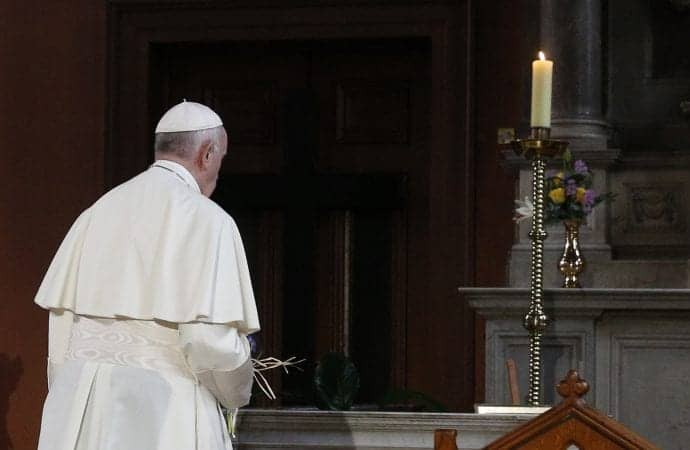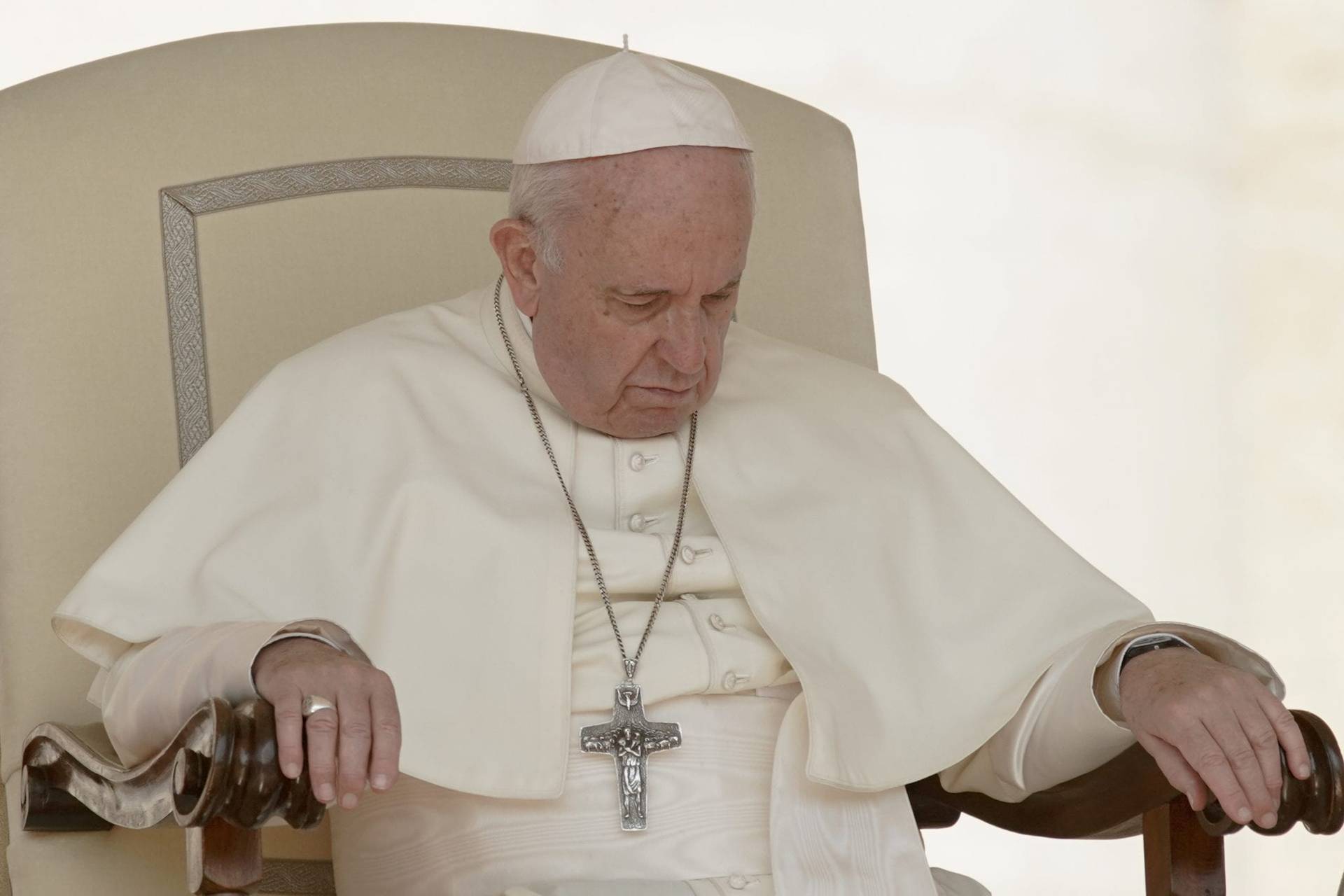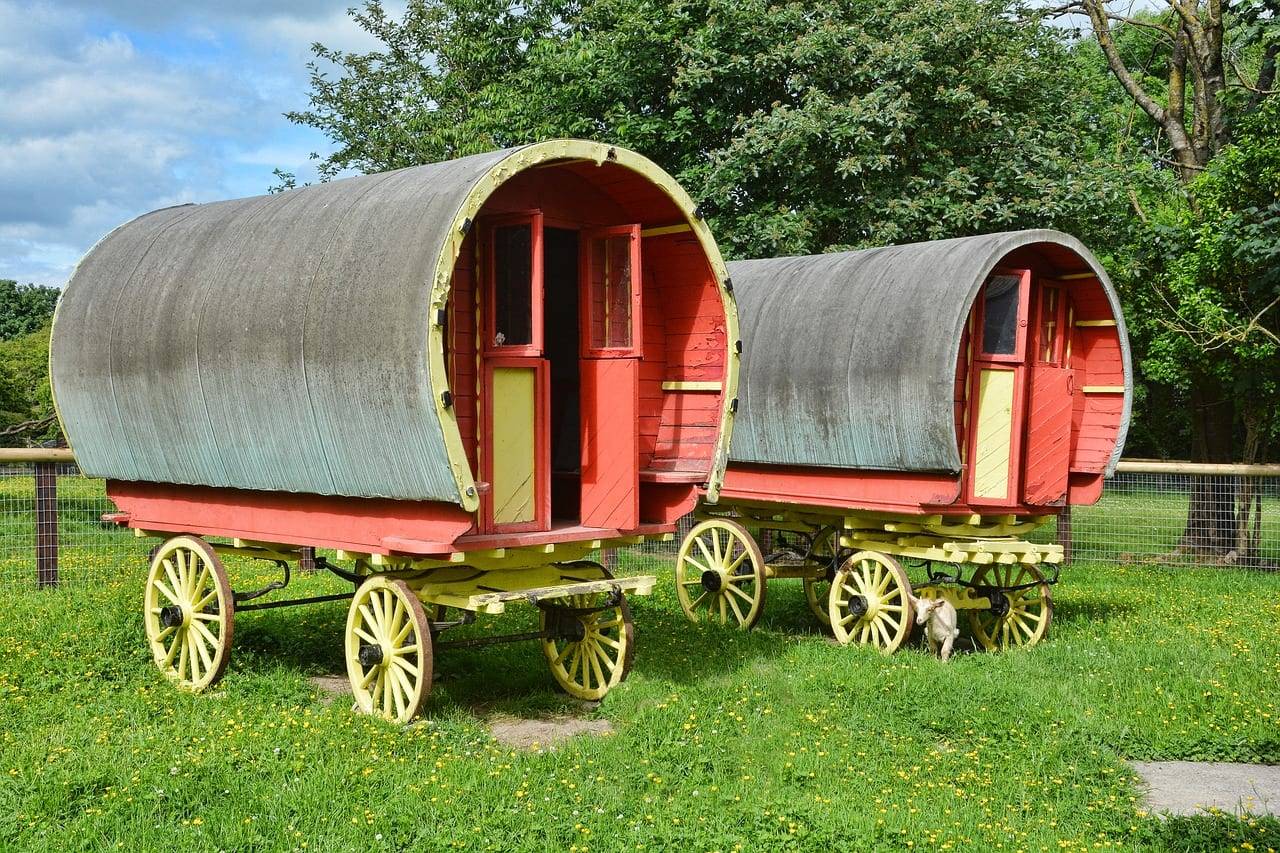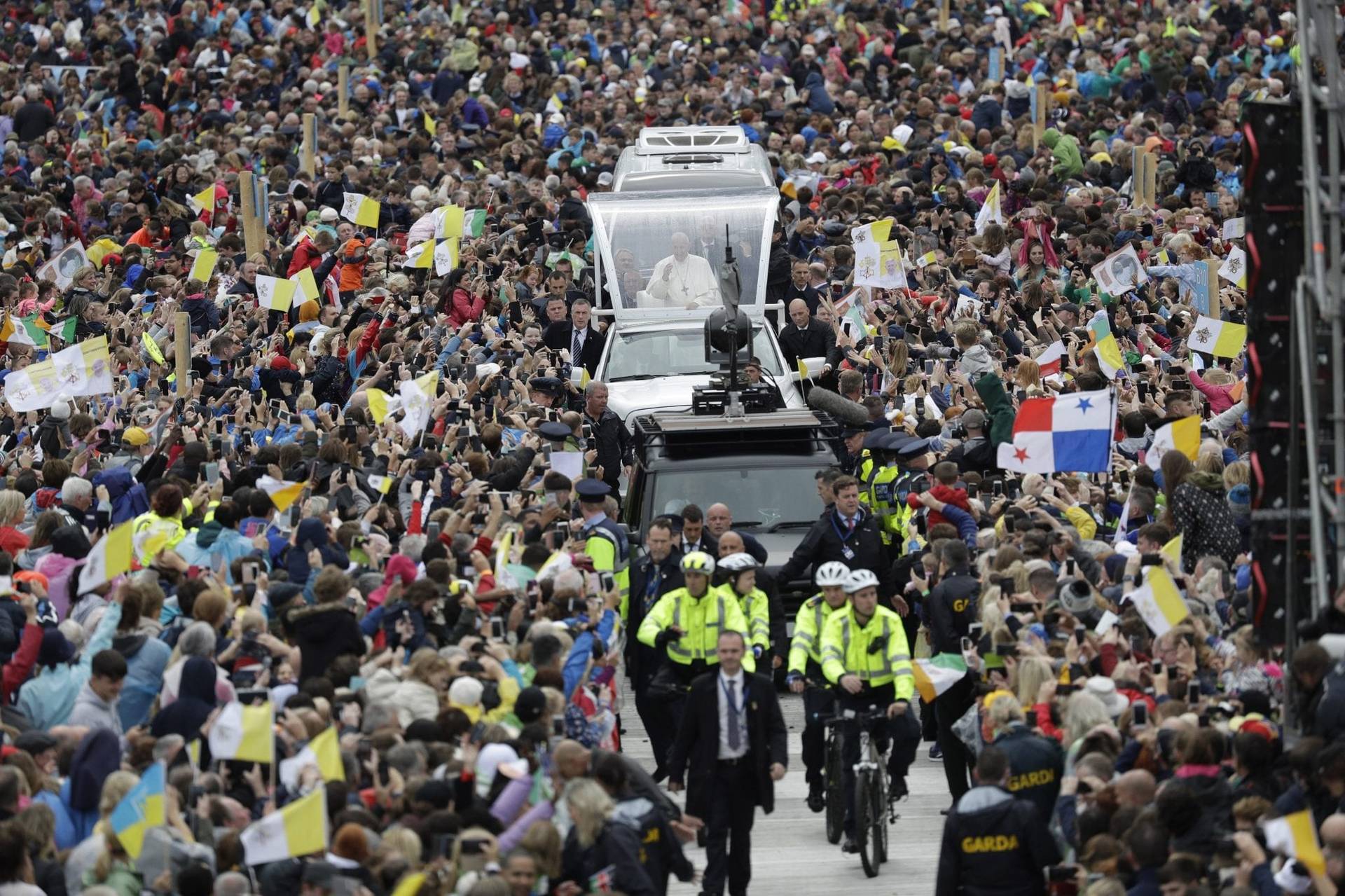BELFAST – No matter when Pope Francis might come to Ireland, it wouldn’t be an easy trip. This is a culture, after all, lacerated north and south, facing the impact of runaway secularization and some of the world’s most appalling clerical sexual abuse scandals.
Right now, however, feels like a particularly tough moment.
In the run-up to Francis’s arrival next Saturday morning, consider what’s been bubbling:
- A grand jury report on six dioceses in Pennsylvania found 300 priests with credible accusations of abuse and more than 1,000 victims over a 70-year period. Among other things, the report raises critical questions about the record of Cardinal Donald Wuerl of Washington in responding to abuse claims when he was the bishop of Pittsburgh.
- Archbishop Theodore McCarrick became the first Prince of the Church in a century to renounce his office as a cardinal, amid charges of both sexual misconduct and abuse.
- In Chile, police and prosecutors continue to launch raids on various Church offices and archives, most recently the headquarters of the national bishops’ conference, in an effort to determine if criminal charges of a cover-up could be filed against various Church officials.
- Cardinal Sean O’Malley, generally seen as the leading reformer on the abuse scandals at the senior levels of the Catholic hierarchy and the president of Francis’s Pontifical Commission for the Protection of Minors, has been forced to pull out of this week’s World Meeting of Families in Dublin as he struggles with abuse charges involving St. John’s Seminary in Boston.
- Irish media recently reported on efforts in the early 2000s by Italian Cardinal Angelo Sodano, then the Vatican’s Secretary of State, to persuade both the Irish president and the foreign minister to help the Church fight off demands to open its archives, and to indemnify it against potential losses in Irish courts. To this day, Sodano remains the Dean of the College of Cardinals.
In that context, the pressure on Francis to say or do something dramatic with regard to the abuse scandals is mounting. A new poll released by Ireland’s Association of Catholic Priests found that a strong majority of Catholics believe it would be “negligent and unacceptable” for the pope not to engage the abuse scandals while he’s here.
Last weekend, a popular West Belfast priest actually used his Sunday homily to suggest the pope should cancel the trip altogether. That priest, Father Patrick McCafferty, is himself a survivor of clerical abuse.
“I would ask our Holy Father the pope not to come to Ireland,” McCafferty said. “I say that as his faithful son, who loves him and would defend him with my life. I ask the pope not to come on account of the betrayal, the destruction and entire loss of credibility.”
I and my Crux colleagues Inés San Martín and Claire Giangravè have been in Belfast this week, where I’ve done a fair bit of Irish media, and the number one question I’ve received is whether Pope Francis will or won’t meet with abuse survivors while he’s in Ireland.
Gently, I’ve tried to explain that in some ways, that’s not the right question. For sure, it would be disastrous in terms of public perceptions if the pope didn’t meet victims, which is part of the reason he almost certainly will. Archbishop Eamon Martin of Armagh said on Thursday he expects the pontiff to do so.
The real question isn’t “will he or won’t he?” but what difference it might make assuming he does.
When such meetings have occurred in the past, victims who took part often seem moved and consoled immediately afterwards, but sour over time as reforms they expected to follow don’t materialize quite the way they expected.
On the other hand, Francis’s meetings with victims during his trip to Chile in January appear to have been part of a chain of events that led him to take a much more aggressive stance on the Chilean crisis, dispatching investigators, summoning the country’s bishops to Rome, and generally lending his support to reform forces.
The question the Irish ought to be asking, therefore, isn’t whether the pope will meet victims, but how those victims are going to feel about the experience six months or a year later – and what will it take to ensure they don’t end up feeling manipulated or betrayed?
Yet amid the very real pressure on Francis to deliver, one shouldn’t lose sight of the fact that, despite it all, plenty of Irish Catholics remain excited and upbeat about the papal visit.
The Irish railway system, for instance, announced on Thursday that most special lines set up to carry pilgrims into Dublin from around the country have already been sold out. Meanwhile, an Irish property-holding company finds itself in hot water for renting out vacant student dormitories for inflated prices – another indication, of course, of strong market demand for proximity to the pope.
On Thursday night, I gave a talk at St Brigid’s Parish Centre in Belfast before a crowd of maybe 250-300 people or so, all motivated to come out by the stimulus of the papal visit – even though most won’t be making the trek south to Dublin because they weren’t among the lucky ones to score tickets.
A revealing moment came when I told the crowd that a few journalists and academics had told us before we got here that Catholics in Northern Ireland are “angry” the pope isn’t coming to them too. It’s a reasonable suspicion, given that the last time a pope came to Ireland in 1979 he couldn’t go north because of “the Troubles,” but the situation is different today.
Yet when I asked for a show of hands of who in that room was actually angry, virtually none went up; I then asked how many are “disappointed,” and almost everyone agreed. In other words, they wish the pope would come, but they’re not mad at him.
The lesson there, perhaps, is that it’s just part of Catholic DNA to want to give their leaders the benefit of the doubt. For Francis, that suggests he may still have a window of opportunity here to get a hearing – but, given all the pressures to slam it shut, it’s a window that likely won’t remain open forever.













